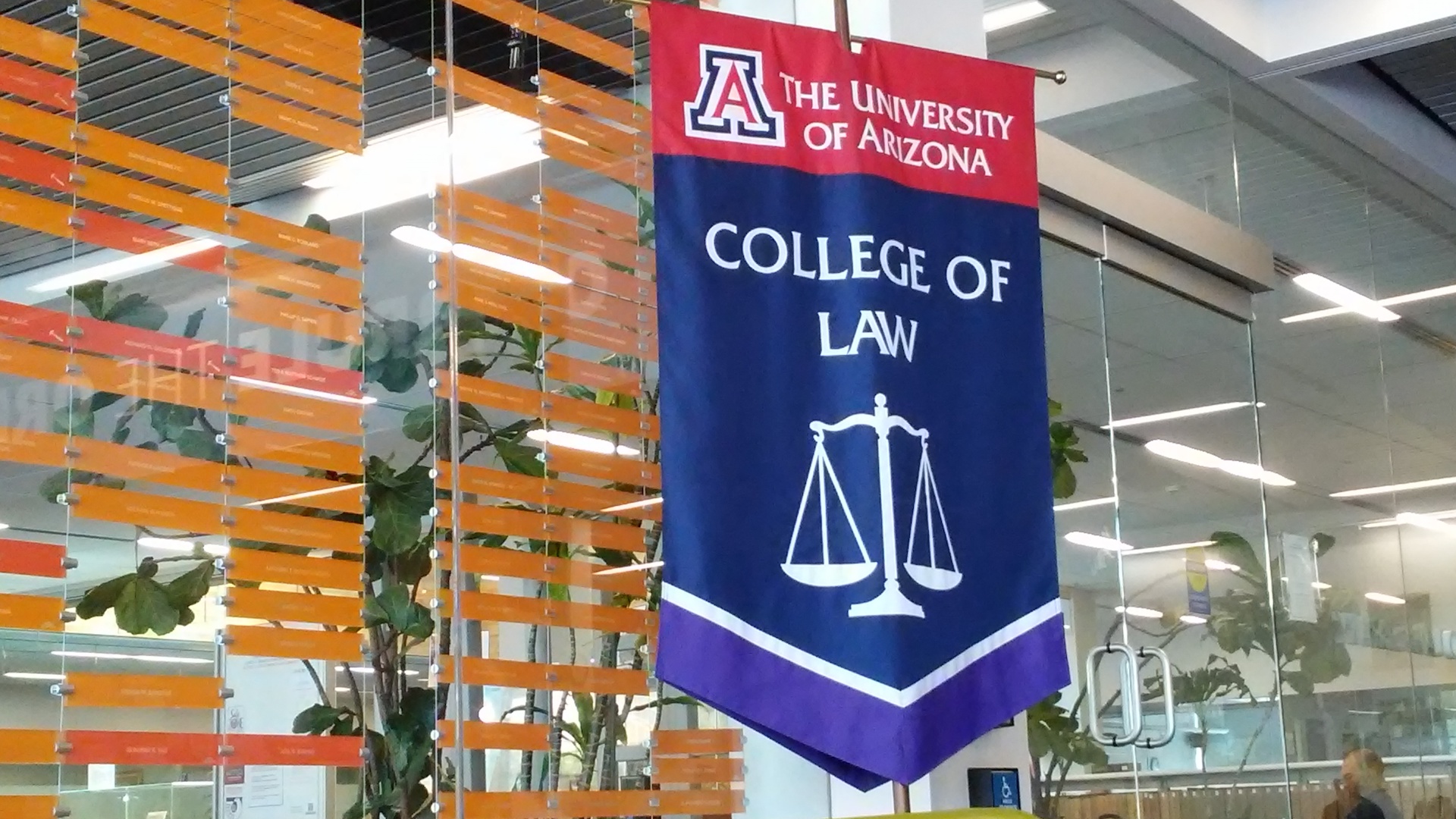 UA law students are getting real-world experience in Pascua Yaqui Tribal Court.
UA law students are getting real-world experience in Pascua Yaqui Tribal Court.
An idea pioneered at the University of Arizona School of Law is gaining traction nationwide. The American Bar Association may drop the requirement that all law school students take a standardized test for admission.
The trend began at the UA two years ago, when law school dean Marc Miller decided to admit students who scored well on the Graduate Record Examinations, a general test for prospective graduate students, as an alternative to the traditional Law School Admission Test (LSAT).
Miller says the change allowed the James E. Rogers College of Law to recruit students from other disciplines, regardless of whether they had considered the law as a career.
"We can now send out notices to mathematicians, engineers, language specialists, people with bilingual and cultural competency, and say, based on your undergraduate record, which is in the GRE system, based on your scores, we want to encourage you to think about a legal career," Miller said.
Miller says after the UA began accepting GRE scores as an alternative to LSAT scores, more than a dozen law schools, including Harvard and Northwestern, quickly followed suit.
"We can now send out notices to mathematicians, engineers, language specialists, people with bilingual and cultural competency, and say, based on your undergraduate record, which is in the GRE system, based on your scores, we want to encourage you to think about a legal career."
The rule changes the ABA is considering would remove the requirement for a standardized admissions test for law school. Instead, Miller says schools would be held responsible for admitting students who have a good chance of succeeding.
"In other words, put it on us to admit wisely for the outcomes of education. Don't unduly weight the inputs of education," Miller said.
The change would not abolish the LSAT. Many law schools are expected to continue requiring it.
The ABA's Standards Review Committee endorsed the proposal last week. Final approval could come next month.

By submitting your comments, you hereby give AZPM the right to post your comments and potentially use them in any other form of media operated by this institution.